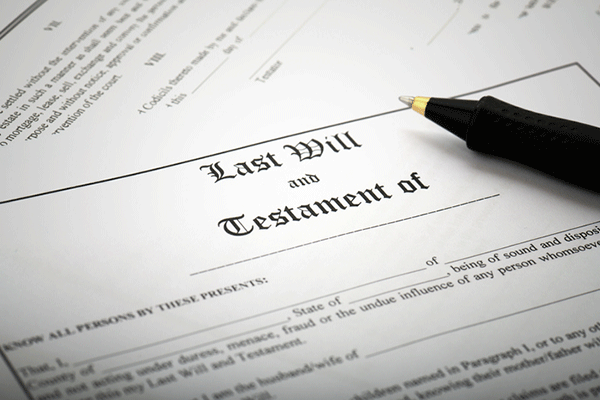Can I get a witness? Surge in demand for wills amid Covid-19 crisis
Legislation on will writing needs to be simplified, argues Edward Grant.
26th May 2020 09:27
Legislation on will writing needs to be simplified, argues Edward Grant.

It can be a difficult subject, but the coronavirus crisis has focused the importance of will creation and legacy planning in many people’s minds, and will writers are reporting surges in enquiries as individuals seek to get their affairs in order.
However, the current period of social distancing and self-isolation has highlighted some of the inflexibilities and impracticalities of existing historic UK laws around will execution.
- Making a will in lockdown: what better time to get the job done?
The challenge for advisers
Given the need for social distancing during the coronavirus crisis, questions have arisen about how to safely – and legally – achieve a valid will and lasting power of attorney (LPA).
One of the biggest challenges is the requirement that wills must be made in writing and signed by two independent witnesses in order to be legally valid. In England and Wales, for example, a will is valid only if it is signed in the presence of two witnesses (both present at the signing rather than at different times) who are older than 18.
At the end of March, the Law Society and the Ministry of Justice were discussing ways to reduce formalities required for the signing of wills and to make it quicker to register for LPAs.
One suggestion had been to introduce legislation that mirrors the process of will-making for those in the armed forces during times of war. Under Section 11 of the Wills Act 1837, members of the armed forces are permitted to draw up either a written or an oral will, and if written, there is no requirement for witnesses to validate it.
But the UK government has since rejected calls to relax witnessing rules in England and Wales during the crisis and rejected an extension of Section 11 of the Wills Act. It stated that having two independent witnesses ensures safeguards for testators, which protect elderly and vulnerable people against undue influence and fraud.
How advisers are adapting
In the absence of reform, many firms are embracing the use of technology to help take instructions. Some clients can be easily interviewed over Skype, FaceTime, Teams, Webex, or Zoom or other video-calling means.
The advantage of this is that advisers have visual contact with their client, which can help determine their capacity, their understanding of the discussion and whether there is evidence of undue influence.
Many people will be in self-isolation or practising social distancing, which poses a challenge to the requirement for two witnesses to be physically present.
One firm of solicitors has been offering a novel method whereby a client drives up and parks their car outside their office, two members of staff come out (this assumes that the office is still open), the client signs the will in his or her car with the window open and the witnesses watching and then adding their signatures. This will also amount to a valid execution.
While not normally ideal, it may be possible to have someone who you are isolating with at home serve as a witness. HM Land Registry, for one, allows certain close family members to witness documents – provided that they are not one of the parties named in the document. If you are in this situation, it’s best to consult a legal professional beforehand to ensure the person you have available is a suitable witness.
Another solution is contacting a neighbour and asking them to serve as a witness while you both comply with social distancing and good hygiene measures. Arrange a time to meet outside during a period of daily exercise, keeping away from others and staying at least two metres apart at all times. Each person should bring their own pen in the same colour and wear disposable gloves or other protective equipment when handling the document.
Sign the document, ensuring your neighbour is able to see you do it, then move away so your neighbour can sign as witness – ensure that you can still see them sign as well. Remember, both parties need to sign the document on the same occasion. There is some discussion about whether witnessing through a window is acceptable. It’s currently not clear if this will be legally valid so is best avoided.
The need for simplification
The Government says that it is still reviewing the case for law reform in England and Wales on executing and validating wills, given the current circumstances. Let’s hope that it comes up with proposals for simplification soon.
Finally, please remember to follow government social distancing guidelines.
Edward Grant is a chartered financial planner at St James’s Place.
This article was originally published in our sister magazine Money Observer, which ceased publication in August 2020.
These articles are provided for information purposes only. Occasionally, an opinion about whether to buy or sell a specific investment may be provided by third parties. The content is not intended to be a personal recommendation to buy or sell any financial instrument or product, or to adopt any investment strategy as it is not provided based on an assessment of your investing knowledge and experience, your financial situation or your investment objectives. The value of your investments, and the income derived from them, may go down as well as up. You may not get back all the money that you invest. The investments referred to in this article may not be suitable for all investors, and if in doubt, an investor should seek advice from a qualified investment adviser.
Full performance can be found on the company or index summary page on the interactive investor website. Simply click on the company's or index name highlighted in the article.